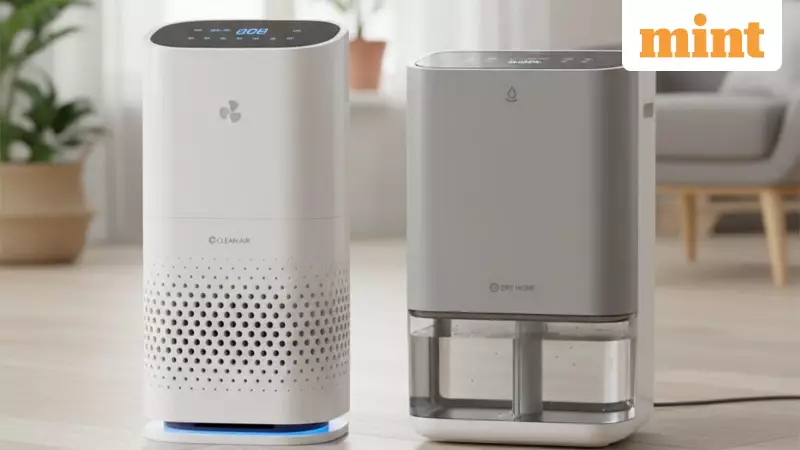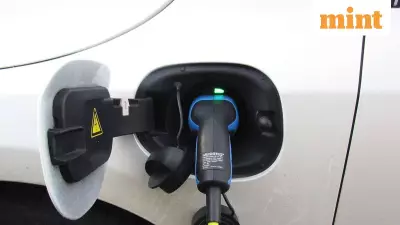
The annual post-Diwali pollution crisis in Delhi has transformed into an unexpected gold rush for India's climate-tech startups, with companies reporting massive surges in demand for clean-air solutions as the capital's air quality remained in the 'severe' zone for days.
E-commerce Platforms Record Explosive Growth
Major e-commerce platforms witnessed unprecedented demand for air purification products following the pollution spike. Amazon reported a 5x jump in air purifier sales across regions, with Delhi-NCR experiencing an extraordinary 20x spike. Premium models showed particularly strong growth, increasing over 150% year-on-year.
Flipkart mirrored this trend, with Delhi-NCR purifier demand rising 8x in early November. The company's quick-commerce arm recorded an even more dramatic nearly 12x jump in sales. Quick-commerce platforms like Instamart saw close to a 10x surge in both air purifiers and N95 masks, with North India leading this overwhelming demand.
Startups Carve Out Specialized Niches
The consumer demand surge has spilled over to specialized climate-tech startups, many of which are developing targeted solutions for specific clean-air market segments.
Qubo, backed by Hero group, has already sold over 30,000 units this financial year and expects to reach approximately 50,000 units by FY25 end. The company attributes this growth to a "very big uptick" post-Diwali. Their car purifiers, a niche segment gaining rapid traction in NCR, are now selling about 100 units daily, equivalent to roughly 3,000 monthly.
"We rely on filter replacements for recurring monetization and nudge customers through automated alerts when filters need cleaning or replacement," said Nitin Dua, co-founder at Qubo by Hero Electronix.
Karban Envirotech has adopted a different approach with vertical diversification at the product level. Their climate-comfort devices combine a fan, purifier and lighting in one unit—a strategic mix that helps bypass seasonal demand fluctuations.
"Purifiers sell in winter; airflow and lighting take over in summer—so the product moves year-round," explained founder and CEO Karan Bansal. The company, which raised $1.07 million last year from Urban Company and Zerodha's Rainmatter, now plans additional funding to scale its research and development pipeline.
Wearables and Deep-Tech Innovations Emerge
At the innovative edge of the clean-air market, Gurugram-based Atovio is betting on wearable air purifiers despite broader market challenges for wearables. These devices create personal clean-air zones around users.
The company has sold approximately 18,000 units since launching in late 2024, with demand experiencing a massive spike. "The uptake after September has been massive... Last week's numbers were about 50x of the first week of September," revealed Atovio's co-founder Anmay Shahlot.
San Francisco-based Praan represents the deep-tech segment of the clean-air space. Initially focused on industrial-grade purification systems for factories with harsher particulate loads, the company has now pivoted toward homes and offices this year.
The shift is showing remarkable traction: about 150 units were sold in November alone, matching all of last year's 144 sales. The company has produced and shipped roughly 1,000 devices this year.
"In India it's a hardware sale; the recurring revenue comes from maintenance of the device one to four times a year," said Angad Daryani, founder and CEO at Praan, noting that Delhi-NCR customers require maintenance at the higher end of that cycle.
Funding Challenges Persist Despite Demand
Despite the explosive demand growth, venture investment in climate tech remains constrained. Founders argue that subscription-style revenues from filters and servicing provide today's hardware-led climate-response startups with stronger repeatability than earlier business cycles.
"There are around 800 viable climate-tech startups in India, but less than 3% have raised Series B or beyond—it's a serious scaling gap," said Sumanta Biswas, assistant director at CUTS International, a policy research and advocacy group.
Large upfront capital requirements, long regulatory lead-times and dependence on government adoption "keep many venture capitalists wary," Biswas explained. "Mitigation demands patient capital; adaptation offers short payback cycles and clear business models."
As pollution season solidifies into a predictable business cycle, climate-tech's near-term future is being shaped less by long-horizon prevention bets and more by adaptation products that offer sellable, short-cycle monetization opportunities.
Entrepreneurs are increasingly moving into micro-segments such as hyperlocal climate services, personal air-tech, and neighborhood-level clean-air solutions—verticals that offer lean business models, faster traction and clear return on investment.





